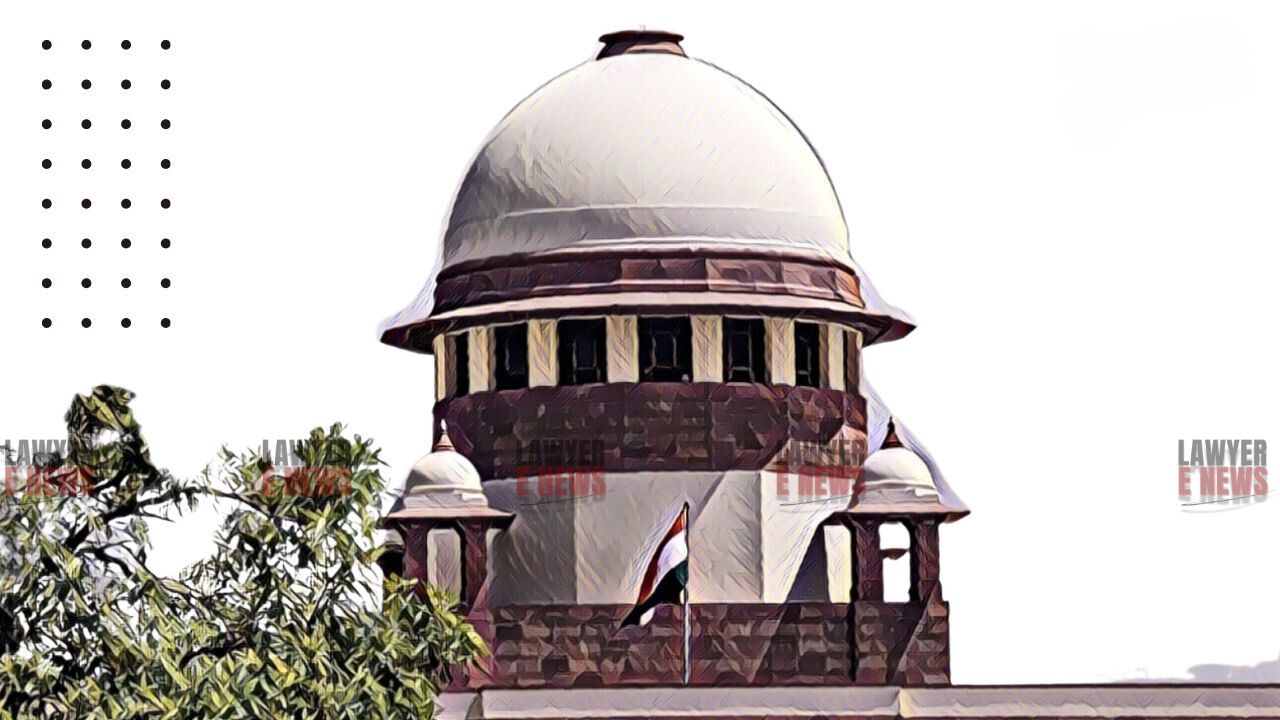-
by sayum
14 February 2026 2:22 PM



Supreme Court Overturns Punjab and Haryana High Court Ruling, Reaffirms Civil Court Authority in Religious and Charitable Land Disputes . In a pivotal judgment, the Supreme Court has overturned the Punjab and Haryana High Court's decision, reasserting the jurisdiction of Civil Courts in cases concerning the ownership of land dedicated to religious and charitable institutions. The verdict emphasizes that such suits do not fall under the jurisdictional bar of Section 21 of the Punjab Land Reforms Act, 1972. The case revolved around land ownership claimed by followers of the Dam Dama Baba Sahib Singh shrine in Una, Punjab.
The appellants, followers of the Dam Dama Baba Sahib Singh shrine, filed a suit for declaration and perpetual injunction against the Punjab State and others. They argued that the land, originally dedicated to the shrine, was wrongfully transferred by Baba Madhusudan Singh to the Agriculture Department of Punjab and his daughter, Sangeet Kaur. They claimed that this land, intended for religious and charitable purposes, was wrongfully declared as surplus by the state authorities.
The trial court dismissed the appellants' suit, finding insufficient evidence to prove the land's dedication to the shrine. However, on appeal, the Additional District Judge partly ruled in favor of the appellants, recognizing a portion of the land as charitable. The High Court later overturned this decision, citing a lack of jurisdiction under Section 21 of the Land Reforms Act.
The Supreme Court critically examined the High Court's interpretation of Section 21 of the Land Reforms Act. It clarified that the section bars Civil Court jurisdiction only in specific instances, such as suits for the specific performance of a contract for the transfer of land affecting the state's surplus area rights or challenging the validity of proceedings under the Act. The present suit, which sought a declaration of land ownership by a religious shrine, did not fall into these categories.
Justice Vikram Nath noted, "The issue of jurisdiction was not pressed by the respondents during the Trial Court proceedings." The Supreme Court highlighted that the respondents did not challenge the trial court's finding on jurisdiction in the First Appellate Court, precluding them from raising it in the second appeal.
The judgment delved into the principles of jurisdiction under the Land Reforms Act, emphasizing that the appellants' suit was for a declaration of land ownership and did not challenge the validity of any surplus order under the Act. "The Civil Court alone has the jurisdiction to decide and declare whether the land belonged to the religious shrine or to Tikka Devinder Singh in his personal capacity," stated the bench.
Justice Vikram Nath remarked, "Section 21 of the Land Reforms Act bars the jurisdiction of Civil Courts only in specific circumstances. The present suit does not fall under either of these two categories."
The Supreme Court's decision to remit the case back to the High Court for fresh consideration underscores the judiciary's commitment to upholding legal principles and ensuring justice in matters involving religious and charitable land ownership. This judgment reaffirms the jurisdiction of Civil Courts in such cases and is expected to have significant implications for future disputes involving similar claims.
Date of Decision: July 09, 2024
Ujagar Singh (Dead) Thr. LRs. & Anr. vs. Punjab State & Ors.
